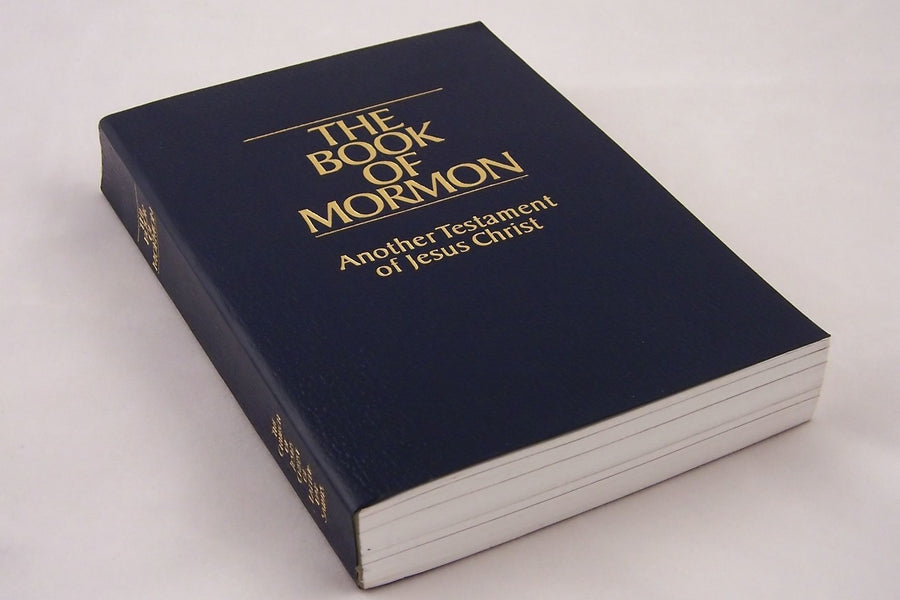Questions about relations between Muslims and Christians continue to receive widespread attention in the media and society at large. In particular, “Do Christians and Muslims worship the same God?” has become especially controversial among Christians in the United States. Responses have often been polarizing, with one side insisting the answer must be affirmative and the other vehemently denying this. But the question itself is highly ambiguous and conflates different issues in an unhelpful manner. Thus, rather than trying to answer directly whether Christians and Muslims worship the same God, it’s more helpful to consider similarities and differences in the beliefs of Muslims and Christians, noting areas of both agreement and disagreement.
There are some clear similarities between Christian and Muslim beliefs. For example, both Islam and Christianity are monotheistic religions that maintain the universe was created by God, that God has given humanity a special revelation, and that there will be a final judgment.
But there are fundamental differences as well—differences that take us to the heart of the Christian gospel and the New Testament teachings about Jesus Christ. What follows is a very concise introduction to some aspects of Islam and Christianity, focusing on several significant points at which the Christian gospel is different from what Islam traditionally has maintained. Highlighting differences shouldn’t be taken as minimizing important similarities between the religions. Since the basic differences concern the core of the gospel, though, appreciation of similarities must be framed with awareness of the differences.
Islamic Origins
Islam emerged in the seventh century in what is today Saudi Arabia. The traditional account maintains that God revealed his will to Muhammad (AD 570?–632) in a series of revelations dictated by the angel Gabriel over roughly 20 years. These revelations, codified and put into writing after Muhammad’s death, compose the Qur’an, accepted by Muslims as the Word of God. The Qur’an is said to be God’s definitive revelation, the culmination of earlier revelations to numerous prophets, including Jews and Christians (called “People of the Book” in the Qur’an). Muhammad is said to be the last and greatest of the prophets.
Initially persecuted in Mecca, Muhammad moved to Medina and established a theocratic society that has served as a model for later Muslim communities. Muslims quickly conquered surrounding areas, so that within a century of the prophet’s death Muslims could be found not only throughout the Arabian Peninsula but also in southern France, Spain, North Africa, central Asia, and even in western China. Islam today is a genuinely global religion, with an estimated 1.7 billion Muslims worldwide, compared with roughly 2.4 billion Christians. Most live in Asia and Africa, with more than 50 percent of the world’s Muslims living in Indonesia, India, Bangladesh, Pakistan, Nigeria, Iran, Turkey, and Egypt.
The major division within Islam is between Shi’ite and Sunni Muslims. Although there are some doctrinal differences between the branches, the division stems from violent struggles early on over the legitimate successor to Muhammad. About 85 percent of Muslims today are Sunni, and roughly 15 percent are Shi’ite. Indeed, Islam faces significant internal tensions as various factions struggle to define what it means to be Muslim in the 21st century. In addition to the tensions between Shi’ites and Sunnis, there are divisions between traditionalists (who resist accommodations to modernity) and progressives (who maintain that Islam is fully compatible with modern, democratic societies), as well as between various ethnic groups. Since the 1980s, radical Islamist movements have adopted global terrorism to promote their agendas.
Muslims are united in their belief in one God, the Qur’an as God’s revelation, and Muhammad as God’s final prophet. They find unity of practice in the Five Pillars: (1) the shahadah, or declaration of faith (“There is no God but God and Muhammad is the messenger of God”); (2) prayer five times daily; (3) almsgiving; (4) the fast of Ramadan; and, if possible, (5) pilgrimage to Mecca.
Islam and Love
Both Muslims and Christians affirm there is one God who is the creator of everything that exists (apart from God himself). But while Muslims and Christians agree to some extent on some of the divine attributes, they also have fundamental disagreements over the nature of God and what he expects from humanity.
For example, Muslims regard God as sovereign, merciful, and benevolent, but they generally don’t think of God as loving in the way the Bible speaks of his love. The Bible declares “God is love” (1 John 4:8, 16), and it’s because of his love for the world that he sent his Son to atone for sin (John 3:16; 1 John 4:10). In turn, Christians are commanded to love God with their entire being, to love their neighbor (Matt. 22:34–40), even to love their enemies (Matt. 5:43–47).
The Qur’an, by contrast, never identifies God with love, nor does it command us to love God. Many Muslims would maintain that talk of God as love compromises his sovereignty, “humanizing” him and distorting what is transcendent. Christians maintain that although God is transcendent and sovereign, he is also personal and loving.
Islam and Scripture
Both Christians and Muslims believe God has given a special revelation to humanity, but they disagree over the nature of this revelation. Muslims believe God revealed his will to various prophets in the past, including to the Hebrew prophets and to Jesus, but that the Old and New Testaments of the Christian Bible have been corrupted and thus are not authoritative. The Qur’an is the definitive and final revelation. Muslims insist Muhammad didn’t author the Qur’an; he was the passive recipient of dictated revelations.
Christians, by contrast, hold that God has revealed himself progressively in the Old and New Testaments. Christians believe that each book of the Bible is simultaneously the product of God and the human author. Although God superintended the process, so that what was written is what God intends, the distinctives of the human authors were allowed to shine through. Therefore, although the product itself is veritably God’s breathed-out word, it is delivered through human authors. Christians believe that the Old and New Testaments are the complete special revelation of God and that no other writings are to be added to the canon. The last of the New Testament writings was completed by the end of the first century—more than five centuries before Muhammad is said to have received revelations. There is simply no historical or textual evidence to support the claim that the Christian Bible is a corruption of an earlier revelation from God consistent with the Qur’anic teachings.
Islam and Christ’s Life
The New Testament itself points to the incarnation in Jesus Christ as the apex of God’s self-revelation (John 1:1–18; Heb. 1:1–3). At this point the differences between Islam and the Christian gospel become most pronounced. Islam has traditionally denied the doctrines of the incarnation and the Trinity. This is not a minor disagreement, as the biblical teaching on the deity of Jesus Christ is central to the message of the gospel.
It’s true Jesus is given a prominent place in the Qur’an. He’s called the Messiah, Son of Mary, Messenger, Prophet, Servant, Word, and Spirit of God. Jesus is always spoken of with reverence in the Qur’an. His virgin conception is indicated in Surahs 3:45–48 and 19:18–22. But the Qur’an omits Jesus’s teachings and rejects the notion Jesus is divine. For example, the Qur’anic Jesus explicitly denies he is to be identified with God (5:109–119). Particularly offensive to Muslims is the title “Son of God.” There can be little doubt that Muhammad understood this title to imply the physical generation of the alleged Son from the Father, an implication he detested (23:90–93; cf. 112). The Qur’an also includes numerous denunciations of what was taken to be Christian teaching on the Trinity (cf. 4:171; 9:30–31). In fact, the Qur’an seems to assume Christians believe the Trinity consists of God the Father, the Virgin Mary, and their child—Jesus. This, of course, isn’t what the Bible teaches nor what orthodox Christians have historically affirmed.
Islam and Christ’s Death
The death of Jesus on the cross, followed by his glorious resurrection, is at the heart of the Christian message. The gospel is the good news that Jesus Christ, the incarnate Word and Son of God, is Savior and Lord, and that through his life, death and resurrection we can have forgiveness and redemption from sin, new life through the indwelling power of the Spirit, and reconciliation with God. There’s no gospel without the cross, for it’s through Jesus’s atoning death on behalf of sinful humans that justification and reconciliation with God are possible.
But it may come as a surprise to Christians to learn that most Muslims deny Jesus died on the cross. Surah 4:155–159 has been taken by many as claiming that although the Jewish leaders tried to kill Jesus, they “did not kill him, nor did they crucify him, but they thought they did.” For Muslims it’s unthinkable that God would allow Jesus, God’s anointed prophet, to be crucified. As Kenneth Cragg observes, “The event which is the very fount and heart of Christianity is held by Muslims to be unhistorical and incredible” (Jesus and the Muslim, 166). There is in Islam no need for something like Christ’s atoning death, for each person is responsible for his or her own actions, period (36:54; 53:38; 82:19). Sin isn’t a matter of the total depravity of human nature but is more a weakness, defect, or flaw in human character (cf. 4:28; 30:54; 7:19–25).
Winsome Disciples in a Diverse World
Christians in the West are part of a world becoming more tightly interconnected on many levels. American society itself is becoming increasingly diverse. Divisions and tensions over ethnic, cultural, ethical, and religious matters often drive further polarization among various groups. How should Christians respond to Muslims and adherents of other religions in American society? The importance of affirming both similarities and differences in beliefs and practices between Muslims and Christians has already been noted. The differences are real, and they are significant. Nevertheless, even as differences are acknowledged, Christians should also recognize the importance of cultivating healthy relationships with Muslims as we together seek the common good.
First, as disciples of Jesus, Christians are to be great citizens (Matt. 22:15–22; Rom. 13:1–7; 1 Pet. 2:13–17). There are roughly 3.3 million Muslims in the States (compared with 5.7 million Jews and 2.1 million Hindus). Muslims serve in the U.S. military; in local, state, and federal government positions; and are active throughout the business, medical, and educational communities. American Muslims, like all other citizens, are guaranteed freedom of religious belief and practice by the Constitution. American Christians should welcome American Muslims, then, as fellow citizens and should work to establish relationships with Muslims at work, at school, and in the community. Where Muslims and Christians share common interests, they should work together for the common good.
Moreover, Jesus’s disciples are to love their neighbors (Matt. 22:34–40), and this includes Muslims. Loving others includes seeking their well-being and acting in ways that promote their good. We are to treat others, including Muslims, how we would wish to be treated (Matt. 7:12).
Finally, Christians are to make disciples of all peoples (Matt. 28:18–20), and this includes Muslims. In faithfulness to the Lord Jesus, Christians must share the gospel with their Muslim neighbors, clarifying misconceptions and urging them to accept Jesus, the Son of God, as Lord and Savior.
Given centuries of mutual suspicion and misunderstandings as well as current tensions, doing so in a winsome and responsible manner won’t be easy. But this is the challenge facing American Christians in the days ahead: to be appropriately accepting and welcoming of Muslims as neighbors while also encouraging them to become disciples of King Jesus. The Christian obligation and privilege to love one’s neighbor doesn’t depend on Christians agreeing with Hindus or Muslims about their respective understandings of God, or even with Buddhists or atheists who deny God’s reality. Differences of understanding are real and profound. But the obligation to love one’s neighbor springs from the fact that all human beings are made in the image of God, and from the command and example of the Lord Jesus himself.
Source: TheGospelCoalition.org



